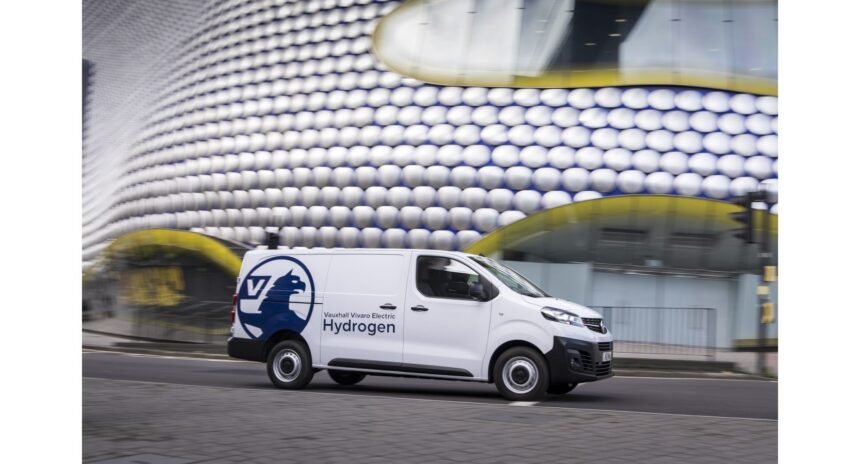Stellantis recently announced the discontinuation of its hydrogen fuel cell technology development program. This program was initially aimed at future sales of light commercial vehicles in Europe. As a result of this decision, series production of hydrogen-powered Pro One vans in Hordain, France, and Gliwice, Poland, will be coming to an end.
Last year, Stellantis had revealed plans to commence customer trials of the Vauxhall Vivaro Hydrogen light commercial vehicle in the UK market. However, due to various factors such as limited availability of hydrogen refueling infrastructure, high capital requirements, and the necessity for stronger consumer purchasing incentives, the company has decided to halt its hydrogen fuel cell technology development program.
Stellantis also stated that it does not foresee the widespread adoption of hydrogen-powered light commercial vehicles before the end of the decade. Consequently, the launch of its new range of hydrogen-powered Pro One vehicles, which was set to take place this year, will no longer proceed. The planned serial production in Hordain, France for medium-sized vans and Gliwice, Poland for large vans will not come to fruition.
Jean-Philippe Imparato, Chief Operating Officer for Enlarged Europe at Stellantis, explained the rationale behind this decision, citing the niche nature of the hydrogen market and the lack of mid-term economic sustainability. The company aims to focus on electric and hybrid passenger and light commercial vehicles to meet customer expectations and ensure competitiveness.
Despite the discontinuation of the hydrogen fuel cell technology development program, Stellantis assured that there will be no impact on staffing at its production sites. Research and development activities related to hydrogen technology will be redirected to other projects within the company.
Additionally, Stellantis highlighted the financial challenges posed by the current state of the hydrogen segment for various stakeholders. The company has initiated discussions with the shareholders of Symbio to assess the market consequences and safeguard the best interests of Symbio in accordance with their obligations.
In conclusion, Stellantis’s decision to discontinue its hydrogen fuel cell technology development program marks a strategic shift towards focusing on electric and hybrid vehicles in response to evolving market dynamics. This move underscores the company’s commitment to adapt to industry trends and deliver sustainable mobility solutions for the future.







